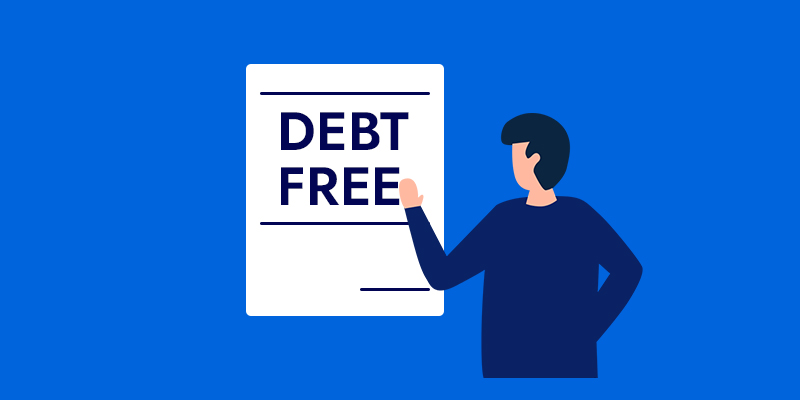
Dealing with Debt Problems Guide
Managing debt challenges can be overwhelming, but with the right information and strategies, you can regain control of your finances and work towards a debt-free future. In this comprehensive guide, we’ll explore practical steps and advice on how you can effectively handle and overcome debt.
Assess Your Debt
The initial step in addressing debt is to evaluate your financial situation. Start by listing all your debts, including credit cards, loans, and outstanding bills. For each debt, you should note the following:
Creditors: Identify the organizations or individuals to whom you owe money.
Total Amount Owed: Calculate the precise amount you owe for each debt.
Interest Rates: Note the interest rates associated with each debt.
Monthly Repayments: Determine the monthly payments required for each debt.
Understanding the full extent of your debt is crucial in devising a strategy to manage it effectively.
Prioritize Your Debts
Not all debts are created equal, and choosing them can help you allocate your resources wisely. Here’s how to group your debts:
Priority Debts: These are debts that can have serious results if left unpaid. They include mortgage or rent payments, council tax, and utility bills. Failing to pay these debts can lead to eviction, lawsuit, or the termination of vital services.
Non-Priority Debts: Group your non-priority debts, such as credit card balances, personal loans, and store credit. These are also important but may not result in immediate legal actions. However, ignoring them can harm your credit score.
Debt Emergencies: Debt emergencies are situations where immediate serious results are imminent. Examples include lawsuits or debt collection agencies. Seek immediate debt advice if you face these situations.
Create a Budget
Creating a budget is a great way to find the money you need to reduce your cost of living expenses and budget your money more effectively. By doing so, you can free up more funds to pay off debt and improve your financial health. For comprehensive insights and detailed steps on budgeting your money, be sure to read our budgeting your money guide.
Paying Off Your Debts
Now that you’ve grasped your debts and established a budget following our guide, let’s plan your debt repayment. Here are some effective strategies:
Small-to-Large Approach: Begin by paying off your smallest debt first, while making minimum payments on the others. Once the smallest debt is gone, move on to the next smallest, creating a snowball effect.
High-Interest First: Prioritize debts with the highest interest rates. Pay off those high-interest debts initially to minimize the overall interest you’ll pay.
Consolidation Loans: Think about merging multiple debts into a single, lower-interest loan. This simplifies repayments and potentially reduces interest costs.
Talk to Creditors: Reach out to your creditors to discuss lower interest rates, extended repayment terms, or even partial settlements if you’re facing financial challenges.
Managing Credit Card Debt
Credit card debt can be particularly challenging to manage because of the high interest rates you pay on cards that build up over time and make the amount you have to repay a lot. Here’s how to effectively manage and reduce your credit card debt:
Pay More Than the Minimum: Always aim to pay more than the minimum monthly repayment. Minimum payments only cover the interest, leaving the principal debt untouched.
Focus on High-Interest Cards: If you have multiple credit cards, prioritize paying off the one with the highest interest rate first.
Consider Balance Transfers: Look for balance transfer credit cards with low or 0% introductory interest rates. Transferring your balance to such a card can help you save on interest while paying down the debt.
Avoid New Charges: While paying off credit card debt, refrain from making new charges to your cards. This prevents the debt from growing further.
Tackling Overdraft Debt
Overdraft debt can sneak up on you because it’s easy to just swipe and not even know your racking up overdraft debt . Here’s some tips on how to address overdraft debt the right way:
Separate Accounts: Consider opening a new basic bank account with no overdraft facility. Use this account for daily expenses to prevent using the overdraft.
Money Transfer Credit Cards: Some credit cards offer money transfer options that can be used to pay off your overdraft. Look for cards with 0% interest periods for maximum savings.
Utilize Savings: If you have savings, consider using them to clear your overdraft. The interest on overdrafts often exceeds the interest earned on savings.
Managing Personal Loans
Personal loans come with fixed repayment terms. If you have a personal loan and are struggling to pay it off, here is some advice on how to manage this debt type:
Refinance Your Loan: Explore loan refinancing options to secure lower interest rates or shorter repayment periods. Be aware of any early repayment fees.
Debt Consolidation: If you have multiple loans, a debt consolidation loan can simplify repayments by combining them into one with a potentially lower interest rate.
Communicate with Lenders: If you’re struggling with repayments, contact your lenders. Don’t avoid them. They may offer temporary relief or more manageable repayment options.
Seek Professional Advice
If you feel really stressed by debt or face tough times, it’s very important to get help from experts. In the UK, there are good places to get this help. They can give you special plans to handle your debt:
Debt Management Plans: These help you pay back what you owe in a way that you can handle. Groups like National Debtline and Citizens Advice give good advice on how to do this.
Individual Voluntary Arrangements (IVAs): This is an official agreement to pay back your debts over a certain time, sometimes with part of the debt forgiven. StepChange Debt Charity and National Debtline can help you understand and set up IVAs.
Bankruptcy: If your debt situation is really serious, bankruptcy might be an option. This can help you start over financially. But you need to really understand what this means before you choose it. GOV.UK has a list of places where you can get free and private advice about bankruptcy. Also, Citizens Advice and StepChange can give you personal advice if you’re thinking about bankruptcy.
These resources and lots of valuable information and support to make good choices about your debts.
The Bottom Line
Handling debt takes patience and willpower. To manage and overcome debt, you need to be committed, disciplined, and use smart ways. Looking at your debt, making a budget, and sticking to a plan to pay it back helps you get back in control of your money. Getting advice from experts shows strength. Remember, you’re not alone; there are people and places that can help you become financially stable. By following these steps and keeping in contact with the people you owe money to, you can work towards a life without debt and be in control of your money future.
Want to Apply for a debt Consolidation loan?
Or learn more about our direct lender loans
